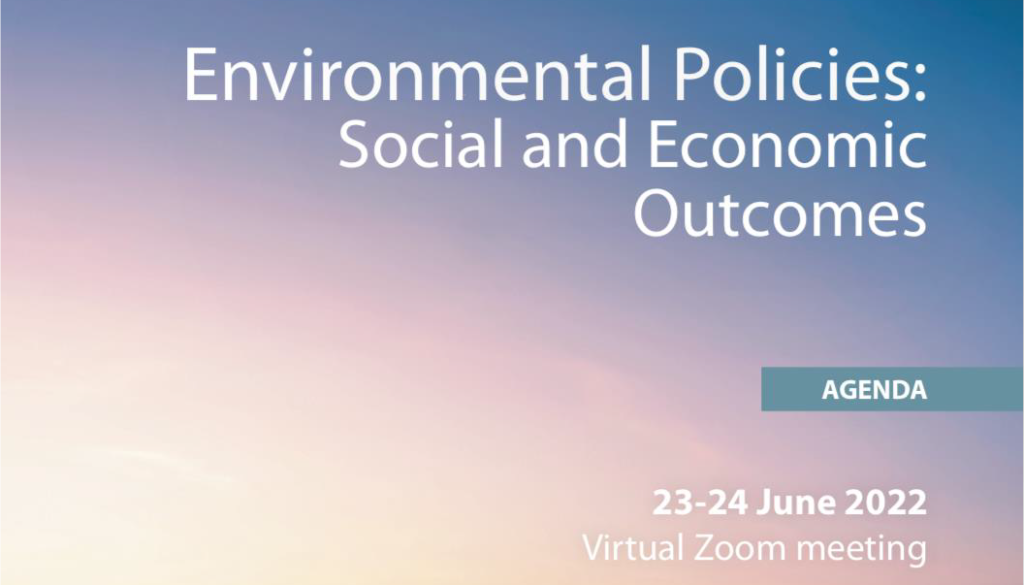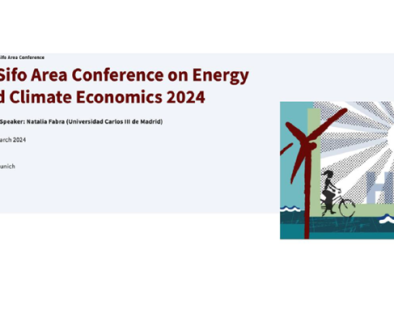OECD workshop: “Environmental Policies: Social and Economic Outcomes”
Policy makers face the challenge of supporting both inclusive economic development and a healthy environment. To respond to this challenge, regulators need tools and insights to assess the consequences of policies on the environment, the economy and social outcomes. From a policy perspective, a desirable outcome is one that achieves the greatest environmental benefits while limiting the adverse economic and distributional impacts. This is all the more important as countries take different paths in addressing environment and climate challenges.
Empirical evidence shows that more stringent environmental policy has achieved significant environmental benefits with little aggregate effect on economic performance. However, localised effects may generate significant losses for certain sectors, firms or individuals while providing benefits to others. Policies must therefore be designed to mitigate the negative impacts while harnessing the benefits.
Research has further shown that by inducing innovation in clean technologies, environmental policies can actually increase the productivity of firms directly affected. Assessments of the impact on the broader supply chain, however, are less conclusive. This highlights the important role of empirical research in informing national policy processes and in shedding light on elements of policy processes that remain less well understood.
The employment impacts of environmental policies can be decisive in determining their political acceptability. While the objective of policies generally will be to limit the long-term employment effects, the adjustments costs might be significant and geographically concentrated. Empirical evidence on employment impacts at different levels – national, regional, sectoral or firm – can support policy design that takes into account this heterogeneity in impacts.
Environmental policies can also have substantial distributional effects when polluters do not bear the full cost of mitigating pollution. The benefits of environmental policies may also be unequally distributed e.g. when subsidies to clean technologies disproportionally benefit wealthier households. Empirical research provides important insights into policy mixes that minimise unfair distributional effects while achieving environmental objectives at the lowest economic cost.
With these issues in the background, the OECD has organized a workshop, “Environmental Policies: Social and Economic Outcomes”. This workshop aims to facilitate a discussion among policymakers, regulators, experts in empirical analysis, modelling and statistical analysis on the latest research on the impact
of environmental policies on social and economic outcomes. The discussion is guided by the following questions:
• What is the impact of environmental policies
on innovation in clean technologies, and in turn, economic performance of firms and sectors directly and indirectly impacted by those policies?
• What is the impact of environmental policy stringency on employment?
• What are the distributional effects of environmental policies and how can policy packages minimise the trade-off between efficiency, equity and cost-effectiveness?
Natalia Fabra has contributed to the panel analysing the impact of environmental policy on employment with her paper “Do Renewables create local jobs?” (EEL working paper)




